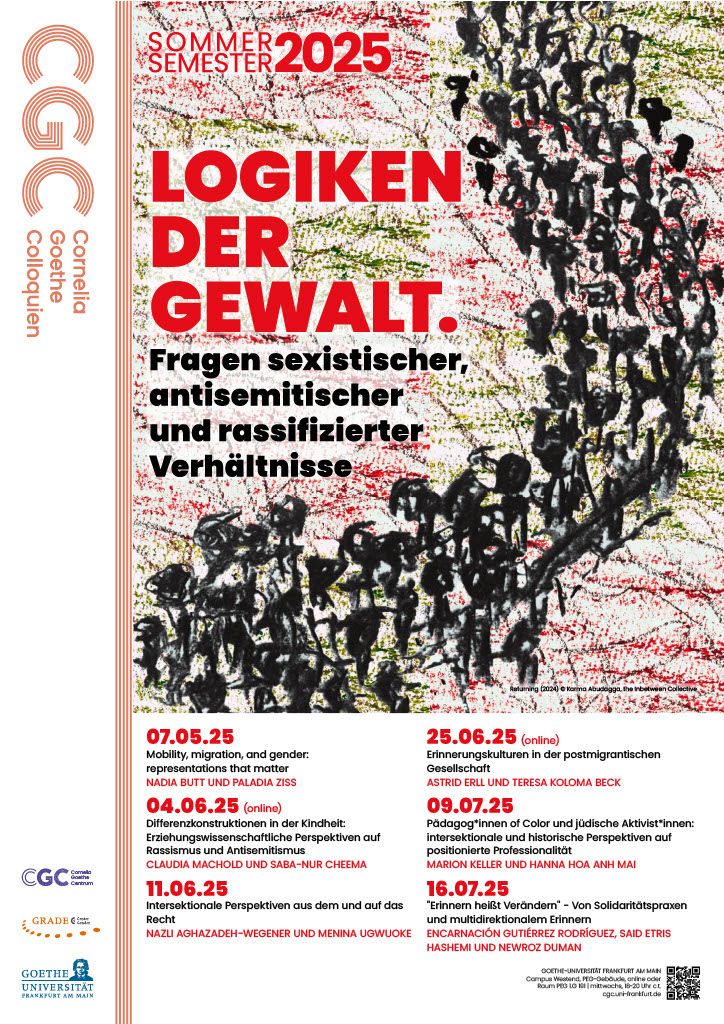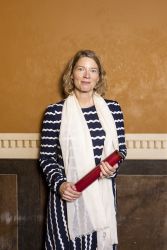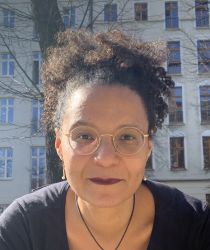
Gewalt, Erinnerung, Temporalitäten
Violence, memory, temporalities (Astrid Erll)
The question of how individuals are "entangled" in various histories of violence (biographical, historical, structural, economic, etc.) is a subject of discussion in the field of memory studies, with the concept of the "implicated subject" (M. Rothberg) serving as a central framework. This inquiry delves into the manner in which such subject positions are intertwined with the temporalities of the memory of violence. The inquiry delves into the distinction between acts of memory that transpire "before" and "after" instances of violence, a subject that has been explored in the Hesse-wide BMBF project titled "Transformations of Political Violence". Additionally, it explores the question of the penetration of layers of time in collective memory and the respective valence that the past receives in discourses about violence. The central question guiding this inquiry is: for whom do specific historical periods, such as the Holocaust or colonial history, represent "closed" pasts, and for whom do they continue to exert an influence in the present? The inquiry delves into the dynamics of memory, exploring how it is perceived as a backward-looking preoccupation, as well as its dominant relation to the present. Additionally, it investigates its potential as a project for the future. The objective of this analysis is to establish a nexus between the temporalities of the memory of violence and the concept of the "implied subject."
Gewaltsoziologie ohne Zuschauerplätze
Sociology of violence without spectators (Teresa Koloma Beck)
The lecture focuses on the intersection of research on violence and the culture of remembrance. It explores the implications of researchers' personal connections to the events under investigation, as evidenced by their use of (family) biographical references, in contrast to the more detached analysis of violence that is typically employed in research. This question is not only salient in the context of historical violence, such as the Holocaust, but also in the study of contemporary armed conflicts. This issue is becoming increasingly salient due to the growing plurality of society, a phenomenon that is also reflected in the academic field. Consequently, there is an increasing need for collective reflection on violence from the perspective of a wide range of experiences. The lecture will address the associated tensions and conflicts, and it will explore the extent to which these can be productively transformed heuristically.

© Nikolai Linares
Prof. Dr. Dr. h.c. Astrid Erll is Professor of Anglophone Literatures and Cultures at the Goethe University Frankfurt and founder of the Frankfurt Memory Studies Platform (FMSP). She conducts comparative research on collective memory and has published on topics such as the memory of the First World War in Germany and Britain, the Iraq wars in Hollywood films, the history of memory in The Odyssey, memory in colonial and postcolonial India, and Holocaust remembrance in German memory culture. Her introduction to memory studies (Kollektives Gedächtnis und Erinnerungskulturen, 2005/2017) has been translated into many languages. Her latest book is Travels in Time: Essay on Collective Memory in Motion (Oxford UP, 2025).

Teresa Koloma Beck's research focuses on the intricacies of quotidian life in the context of globalization, with a particular emphasis on the nexus of war and crisis. Her research is further characterized by a keen interest in the contemporary resonances of colonial and imperial history. She currently serves as a Professor of Sociology at the Helmut Schmidt University in Hamburg. She co-authored Theorien der Gewalt zur Einführung (Junius, 2020; 3rd revised edition) with Klaus Schlichte.
The event takes place in German.
The CGC strives to make its events as accessible as possible. If you require assistance in order to participate in our event, please let us know your support needs by 28 May 2025 via email at: cgcentrum@soz.uni-frankfurt.de. We will then do our best to reduce any barriers within the scope of our capabilities. We look forward to your participation.

